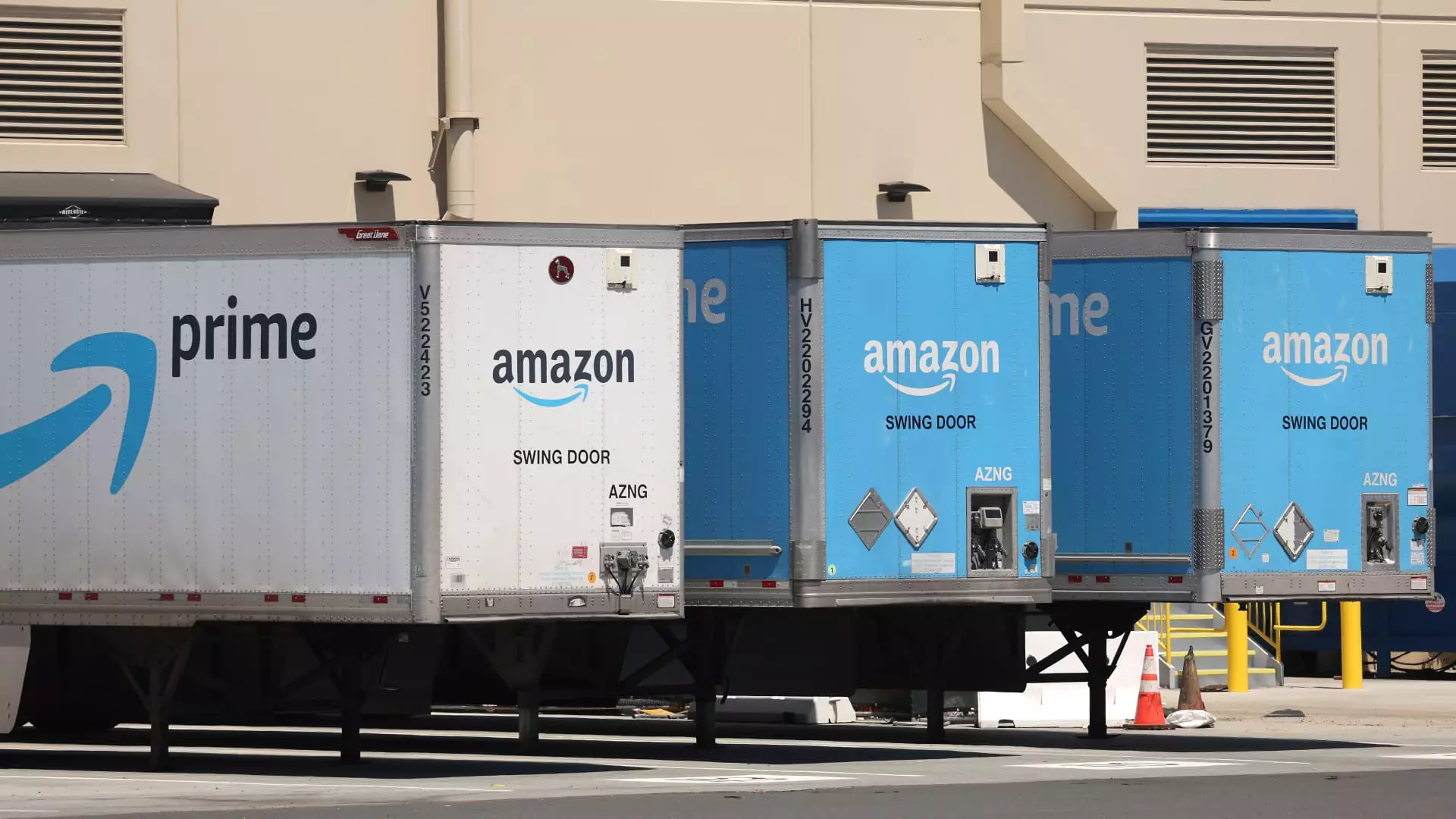In an astonishing revelation, members of an Armenian organized crime ring have been charged by the Department of Justice (DOJ) for orchestrating a theft operation that siphoned off over $83 million worth of cargo from Amazon. This operation, evolving since at least 2021, sheds light on a concerning vulnerability in the world of e-commerce, where cybercriminals can adapt and exploit sophisticated logistics systems. The way these criminals masqueraded as legitimate truck drivers exemplifies a disturbing trend: the increasing audacity of organized crime in a realm that many consider secure due to its digital nature.
The thefts — much worse than simple shoplifting — were not isolated incidents but rather part of a systematic ploy that saw at least four individuals operating under various transport companies. The nature of their crime was not merely opportunistic but strategically coordinated to exploit Amazon’s vast logistics network designed for efficiency. It begs the question: how did a multinational giant like Amazon allow such a blatant abuse of their supply chain to occur? While Amazon has broadened its security measures to combat fraud, the sheer scale of these operations indicates a systemic issue within its fulfillment ecosystem that needs urgent addressing.
Impact on Trust and Credibility
When a business like Amazon faces such significant losses from theft, the repercussions ripple beyond just the dollar amount. The credibility of their logistics and trust among third-party sellers who rely on Amazon’s marketplace for sustainable growth comes under fire. This incident introduces a paradox; given that many of the suspended sellers claim ignorance about participating in the sale of stolen goods, this murky situation raises ethical concerns about accountability in Amazon’s marketplace. What happens to the small businesses that were unintentionally caught in this storm? It feels as though the very structure underpinning e-commerce is tested, exposing vulnerabilities that could potentially spiral into larger economic implications.
Furthermore, as law enforcement has linked several defendants to a shocking array of crimes, including attempted murder and healthcare fraud, it paints a grim picture of the extent of criminal networks infiltrating legitimate markets. The implications of such associations are alarming; they suggest that the theft of tangible goods aligns with more severe criminal enterprises. As consumers, we sometimes forget that the tech-savvy conveniences of online shopping are juxtaposed against shadowy figures lurking behind the scenes — a reality that’s increasingly difficult to ignore.
A Call for Vigilance
In light of this scandal, there is an urgent need for vigilance from both e-commerce platforms and consumers alike. Companies must advance their security protocols, employing technology that not only detects fraudulent activities but also anticipates potential loopholes that could lead to exploitation. For Amazon, this may mean reevaluating their existing systems, perhaps reinforcing partnerships with law enforcement, and obtaining more robust background checks on transportation vendors. They must acknowledge that while growth and efficiency define their platform, security cannot be an afterthought.
Meanwhile, consumers and reliable third-party sellers need to adopt a posture of skepticism and diligence. In an increasingly complex market saturated with competition, it may prove wise for sellers to employ due diligence processes of their own, ensuring that goods are sourced ethically and transparently. The onus is on both ends of the transaction to cultivate an environment where accountability prevails.
Examining the Broader Social Impact
This incident is not merely about theft; it reflects broader social issues rooted in economic vulnerability. The growing trend of cargo theft draws attention to the struggles of many communities that may turn to crime out of desperation or lack of opportunity. The need for more accessible economic pathways cannot be overstated. This is not an excuse for criminal actions, but rather a call to recognize the multifaceted nature of such offenses. Until society addresses the root causes of crime, we will likely continue to see adaptations of such schemes, no matter how advanced our technology becomes.
As the dust settles on this scandal, we are left with uncomfortable questions about the integrity of our systems, the struggles of small businesses, and the ongoing challenges in reducing crime. These narratives remind us that the e-commerce landscape, despite its many conveniences, is as vulnerable to the shadowy hand of organized crime as any traditional business, leaving us to ponder how we can collectively create a safer environment for all.



Leave a Reply